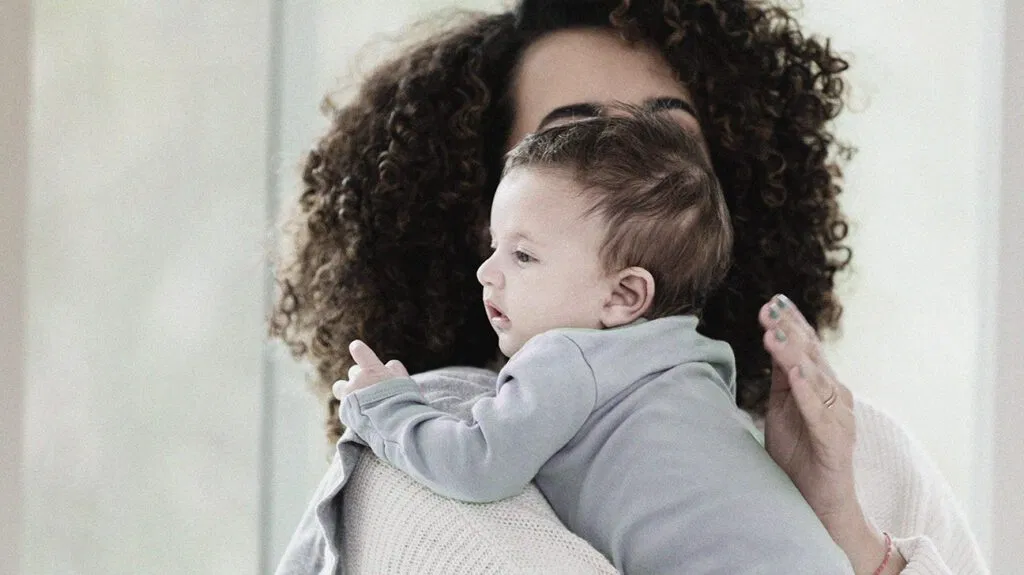
Burping Basics for your Newborn Baby
Blogs
Burping Basics for your Newborn Baby
Did you know that aside from making you sound funny, burping has an actual purpose?
Believe it or not, burping is a normal body function, both for adults and for babies. It is our body’s way of getting rid of the gas that enters our bodies when we swallow.
As we all know, being unable to release that gas is quite painful. Since we are already full-grown adults, we can easily get rid of that gas through burping.
However, when it comes to our babies, it’s not the same. Newborns do not have the same capacity to burp as we do. If you want to see your baby burp, you’re going to have to wait until they’re around 7 months old.
But until they reach that age, it won’t be a pleasant experience seeing them cry as they try to expel the gas from their bodies.
Not to worry, though. Even if you have no experience dealing with a newborn’s burping, all you have to do is read this article. We’ll discuss burping basics you need to know to help you out.
Let’s get to it!
If a newborn is crying, it probably needs to burp.
Air enters newborn babies’ tummies during feeding or when they cry. When air is trapped in an infant’s stomach, it may cause discomfort or pain, leading to infants becoming fussy without adults knowing why. But sometimes, all they really need is a good burp to let the air out.
You have to be aware of the signs that air may be trapped in an infant’s body. These include:
- A baby arching their back
- The baby legs drawing their legs into their tummies
- Clenched fists
- A hard tummy
Here are some Burping Basics for your Newborn Baby you need to know.
As a parent, you want to be attuned to the needs of newborn baby. This includes extending a bit of help when air gets trapped in their tummies causing them discomfort.
As adults, we sometimes take for granted a lot of the physical functions that we have been accustomed to. We walk, talk, eat, move around, think and do a lot of other things on our own.
Newborns, on the other hand, need a little help doing a lot of these things, burping included. Their physical development is still at a stage where they cannot burp by themselves.
A little help enables newborns to pass gas goes a long way in relieving any discomfort from trapped air. Helping a baby burp may also prevent nutrients from being spit out.
Below we discuss some burping basics that parents need to know and will be useful in bringing comfort to newborn.
There are different burping positions you can do.
There are several ways to help baby burp. One of the most common methods is by holding baby upright on one side of your body with your infant’s head resting on shoulder. A gentle pat on infant’s back with cupped hands will help facilitate burping.
If they don’t burp immediately after the first pat, just continue patting them gently. They will eventually expel the trapped air.
Other burping positions include sitting your baby on your lap or letting them lie face down on your lap. Gently patting your baby’s back with cupped hands while sitting or lying on your lap promotes burping.
Don’t be afraid to do follow up burping.
After burping, your baby may still show signs of discomfort due to remaining air in their tummies. You can do a follow-up by making your baby lie on their back and gently massaging their tummy or moving their legs in a circular motion towards their tummy. You can also try giving your baby warm bath to remove any extra gas in their stomachs.
They need to be burped after feeding so they can get nutrients.
An infant’s stomach can only hold a limited amount of nutrients, about 1 teaspoon per feeding. Getting rid of gas in their stomachs through burping will help free up space for the nutrients that babies get when it is time to feed.
The feeding position is important.
Ensure that your infant’s feeding position does not cause gas or air to be swallowed. Make sure that your baby’s head is higher than their stomach when feeding.
Bottle position is also important.
If you’re going to bottle feed your baby, check that the bottle is tipped upwards during feeding to prevent any air from accumulating in the nipples.
The best time to burp
Some babies require a burping two minutes before feeding to ensure that there is space for a full feeding without trapped air. For other babies, burping after feeding works to release air that comes in when babies swallow.
In short, there are no hard and fast rules when it comes to burping your baby. The important thing is they get burped.
Expect air but be ready for spit to come out instead.
The goal of burping is for air in infants’ tummies to come out. However, you should have a cloth ready during a burping routine as sometimes spit, instead of air, comes out. The cloth can be draped over your shoulder or arms, depending on your newborn’s burping position.
Don’t be worried about the mess that may occur if spit does come out. It is a normal occurrence when burping infants.
What happens when babies don’t burp?
Parents or caregivers need not panic or worry if a baby does not seem to burp. Gas will eventually pass, either through burping or farting. But do expect your infant to feel some discomfort which may lead to a crying fit.
Studies have also shown that there is no difference in terms of a baby’s level of comfort or discomfort whether they are burped or not. Think of burping as touch therapy for your infant. Your baby’s burping routine itself may already bring comfort to your newborn because of your loving touch.
And for some babies, not much air is swallowed, so there is no need for regular burps. Or your infant may pass gas some other way that frequent burping is not needed. And yes, it’s also possible that your infant is unbothered by the air in their stomach, so there is no need to burp them.
A little help with burping goes a long way in making your baby happy.
Think of Burping Basics for your Newborn Baby as your loving way to connect with your infant to relieve their discomfort due to gas in their tummies. Even if your baby does not seem bothered by gas in their stomach, the care that goes into burping routine is a reward in itself for you and your baby.
Infants need a lot of attention, love, support, and help from mommies and daddies. A regular burping routine provides baby with all of that while relieving them of trapped air in their tummies.
If you need additional information or even help about burping, don’t hesitate to contact us at Doulas of the Valley. We guarantee that we will bring exceptional care both to your newborn and to the rest of your family.
We look forward to hearing from you!


